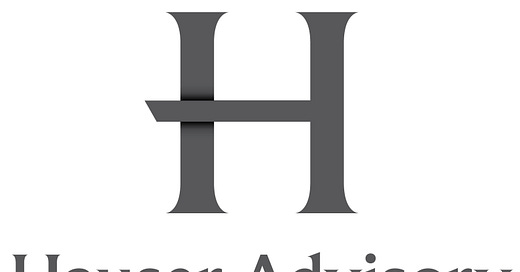Friends, it’s maybe happening! At least, that’s my takeaway from Matt Zorn’s great scoop in the form of the unredacted letter from the Department of Health and Human Service to the Drug Enforcement Agency recommending a reschedule of cannabis to Schedule III. Mazel tov to Matt (and Shane Pennington, previous Cannabis Musings guest star and co-author with Matt Zorn of the excellent On Drugs) on your persistence.
If you missed it, the unredacted letter confirmed what we all kind of suspected about HHS’s conclusion, which was reported last August, but never had any proof about; however, we also got the benefit of HHS’s research and analysis, which made a strong case for rescheduling. Needless to say, cannabis stock investors, depressed because SAFE(R) Banking still won’t pass, were freilach about the news, suggesting the market hadn’t fully priced in last August’s report (or it forgot).
But we’re not going talk about rescheduling today. We’re going to talk about celebrities and their cannabis brands. In particular, the New York Times’ article earlier this week about Mike Tyson’s Tyson 2.0 line of products.
One of the more unexpected aspects of this industry is that, in my observation, celebrity cannabis brands/endorsements generally haven’t been terribly successful. For every Tyson 2.0, there’s Justin Bieber’s Peaches. For every Khalifa Kush, there’s GWAR’s Bud of Gods CBD line. For every Houseplant, there’s John Legend partnering with PLUS Products. And for every Death Row Cannabis by Snoop Dogg, there’s Drake’s venture with Canopy Growth. Consider also shoe company mogul and sometimes guitarist Carlos Santana’s Mirayo, Melissa Etheridge’s Etheridge Botanicals, Jay-Z’s Monogram, and Montel William’s Lenitiv.
Many celebrity collaborations and brands were launched in the ongeshtopt mit gelt days of 2017-2019, when capital was cheap and prospects were strong. And yet, it appears to me that most of them didn’t work out (this is purely observational – I haven’t done a serious dive into any data), which is odd to me. Certainly, celebrity endorsement works for other products. If Orson Welles could promote Paul Masson wines in the 1970’s, why couldn’t TV star Jaleel White, beloved for his portrayal of Steve Urkel on Family Matters, launch White with 710 Brands? So why hasn’t it really taken hold in cannabis?
I’m not totally sure, but I think it’s because the cannabis culture (subculture?) doesn’t trust anything it doesn’t perceive as (what it deems to be) authentic (i.e., true to the culture). That’s generally with good reason, and it does have its charms, but we’ve talked about the downside of that approach towards business. It’s a very friendly industry, but it also doesn’t take kindly to strangers.
Similarly, I think a primary reason many celebrity cannabis brands and collaborations haven’t succeeded is that the cannabis community didn’t perceive them (rightly or wrongly) as authentic. Now, Mike Tyson isn’t really known for his presence within the culture, certainly relative to, say, Jerry Garcia, whose estate’s Garcia Family Provisions hasn’t quite had the uptake of others. And joint ventures can suffer producer and capital issues that cause them to wither. But generally, I think the culture’s perception of the celebrity goes a long way towards determining success for their cannabis brand.
What to make of this, then? I think it’s indicative of the unforeseen challenges of this industry. What’s plainly intuitive elsewhere frequently doesn’t work at all in cannabis, whether that’s finance, compliance, sales, whatever. Combine that with the industry’s skepticism towards inauthenticity, and you’ve got a situation where it’s hard to come into this industry from the outside and try to understand it (and even worse if they think they can change it).
Something to ponder while you’re noshing your way through the munchies.
Be seeing you!
© 2024 Marc Hauser and Hauser Advisory. None of the foregoing is legal, investment, or any other sort of advice, and it may not be relied upon in any manner, shape, or form.




